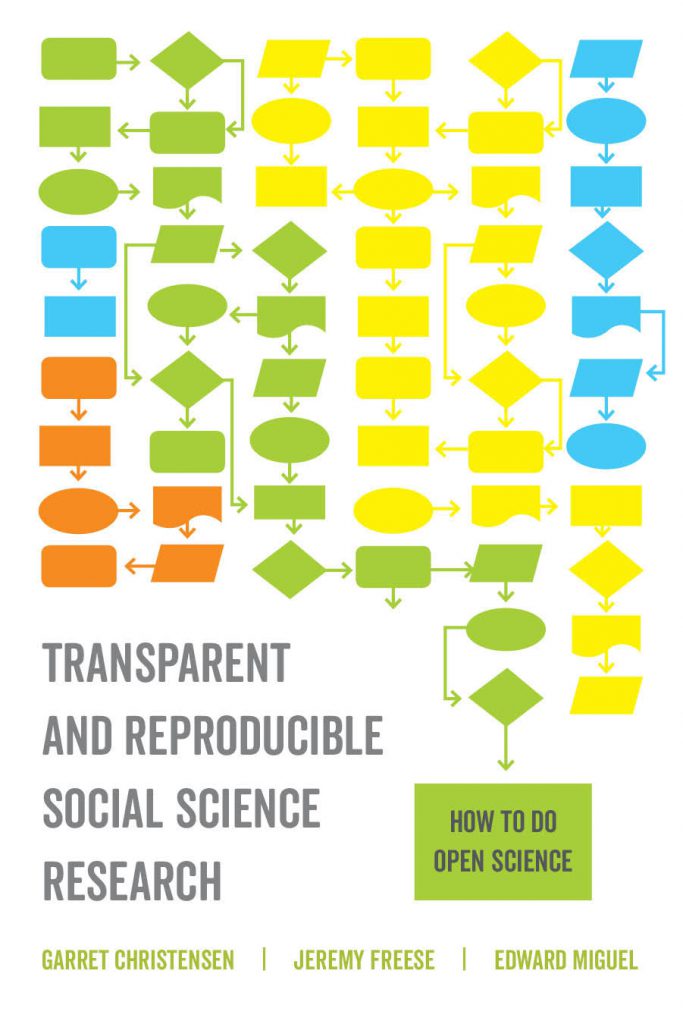Transparent and Reproducible Social Science Research

Garret Christensen, Jeremy Freese, and Edward Miguel
Recently, social science has seen numerous episodes of influential research that was found to be invalid when placed under rigorous scrutiny. Transparent and Reproducible Social Science Research: How to Do Open Science is the first book to summarize and synthesize new approaches to combat false positives and non-reproducible findings in social science research, document the underlying problems in research practices, and teach a new generation of students and scholars how to overcome them. Created with both experienced and novice researchers in mind, Transparent and Reproducible Social Science Research serves as an indispensable resource for the production of high quality social science research. (Published by University of California Press in July 2019. Watch NBER Methods Lecture.)
Co-authors: Garret Christensen and Jeremy Freese.
Featured Articles
Pre-results Review at the Journal of Development Economics: Lessons learned so far
Andrew Foster, Dean Karlan, Edward Miguel, Aleksandar Bogdanoski
World Bank Development Impact Blog
July 15, 2019
In March 2018, the Journal of Development Economics (JDE) began piloting Pre-results Review track (also referred to as “registered reports” in other disciplines) in collaboration with the Berkeley Initiative for Transparency in the Social Sciences (BITSS). Through this track, the JDE reviewed and accepted detailed proposals for prospective empirical projects before results were available, offering a commitment to publish the resulting papers regardless of…
Does Providing Electricity to the Poor Reduce Poverty? Research Suggests Not Quite
Kenneth Lee, Edward Miguel, Catherine Wolfram
Forbes
March 9, 2018
But does electricity really help lift households out of poverty? My co-authors and I set out to answer this question. …
Despite $7 billion to ‘Power Africa’, why the continent is still in the dark
Kenneth Lee and Edward Miguel
Reuters
July 30, 2015
Power Africa is tackling a critical global challenge. All of Sub-Saharan Africa, with 961 million residents, currently only consumes about as much power as New York City. Expanding energy access will be vital for driving Africa’s economic transformation over the coming decades. Yet our research in Kenya shows that most households and businesses still face major barriers to accessing electricity. In recent years, hundreds of…

